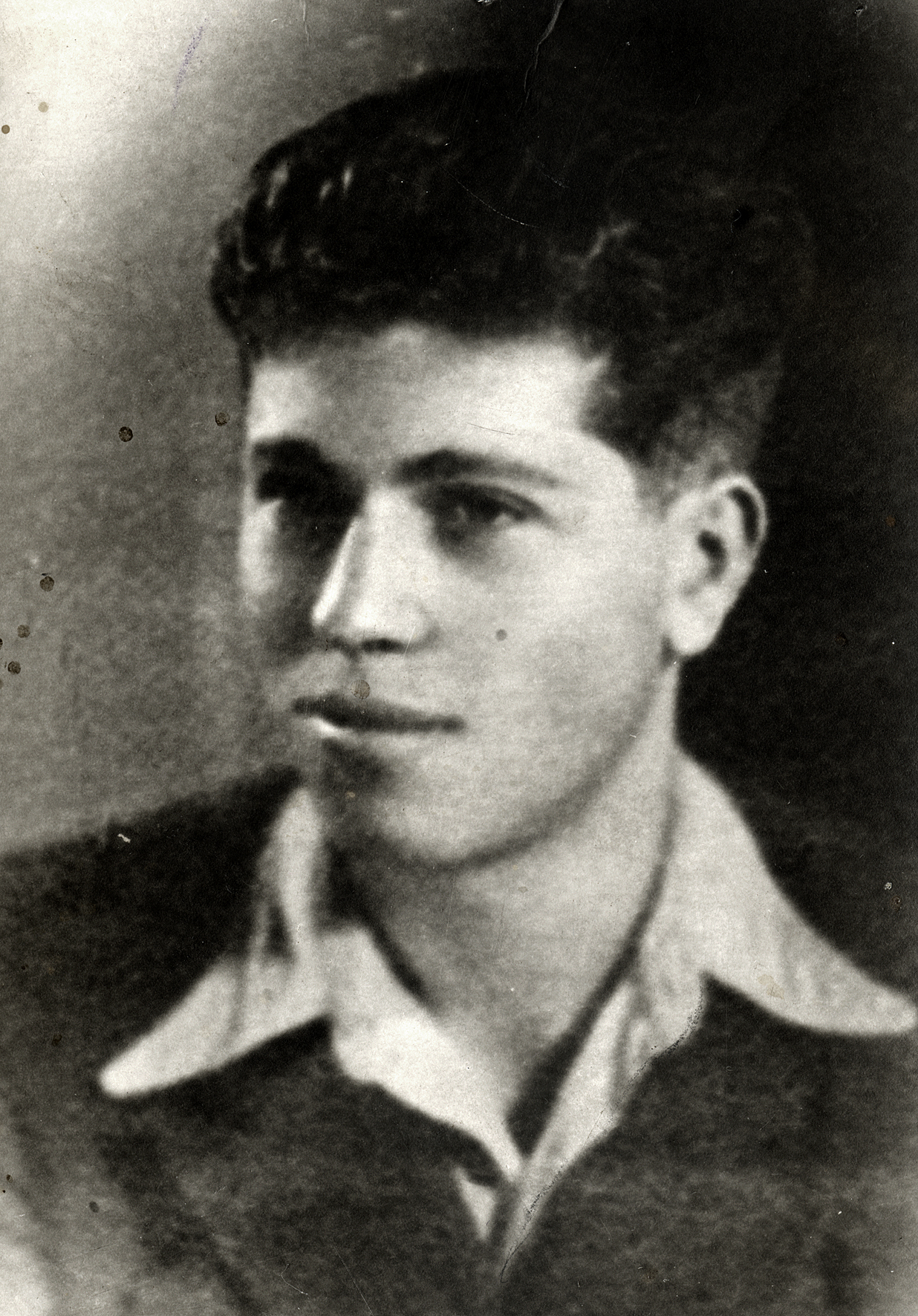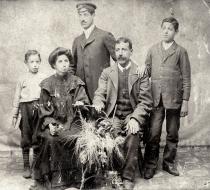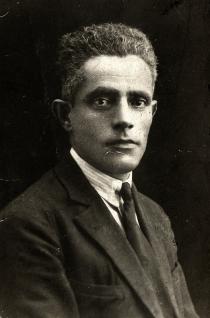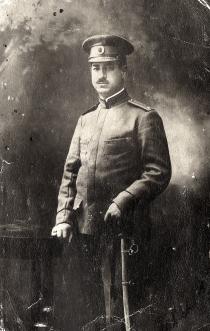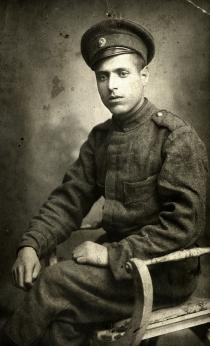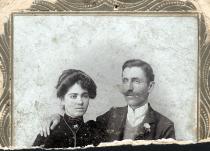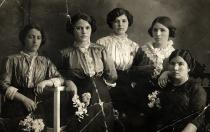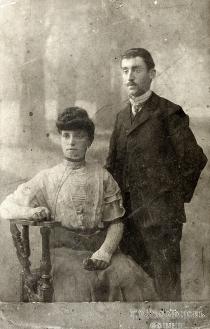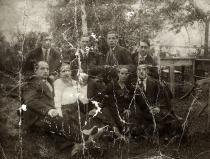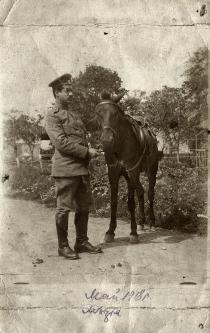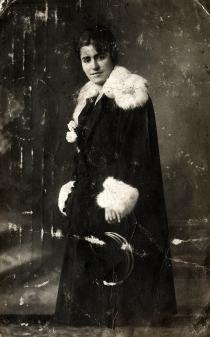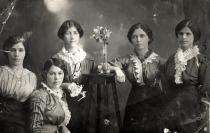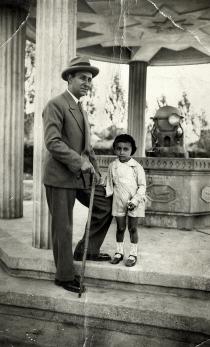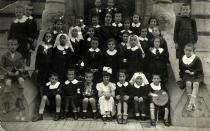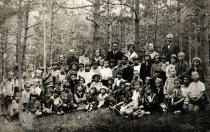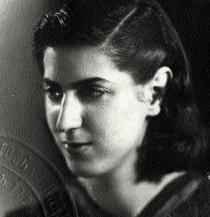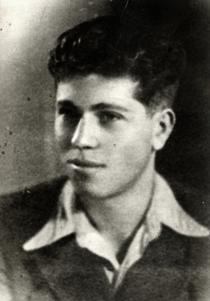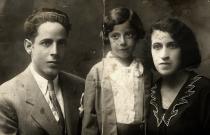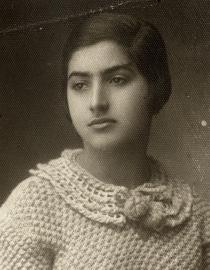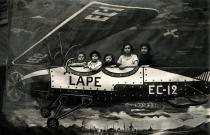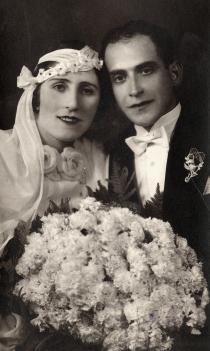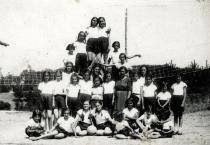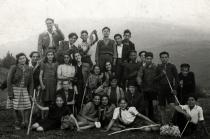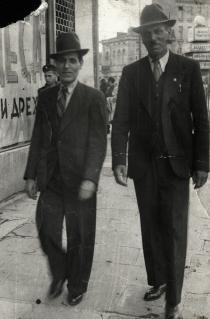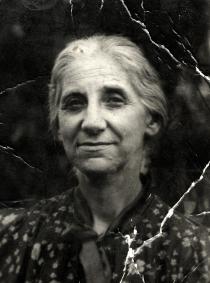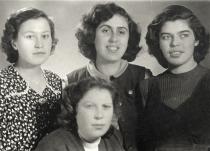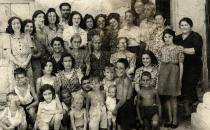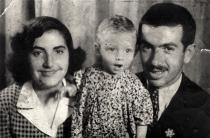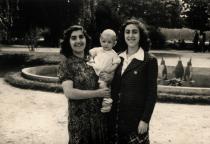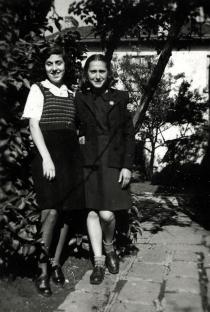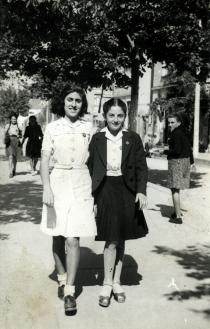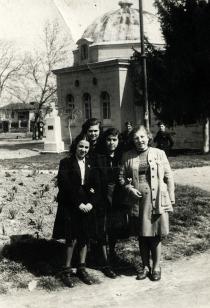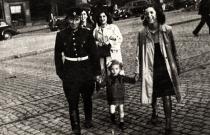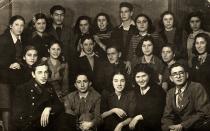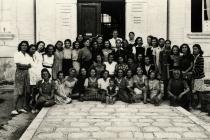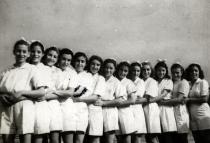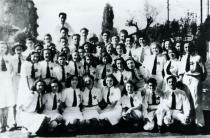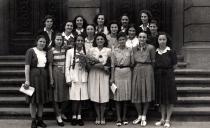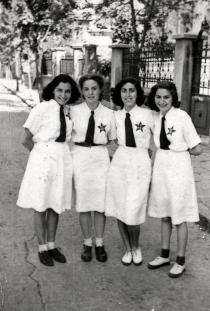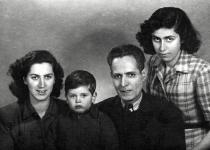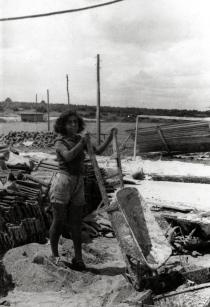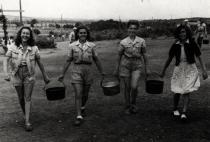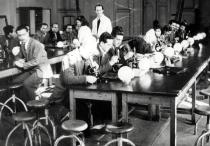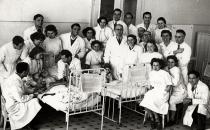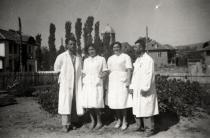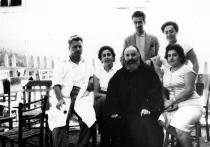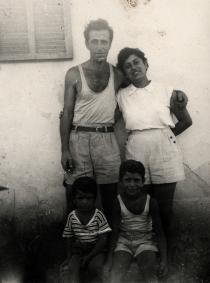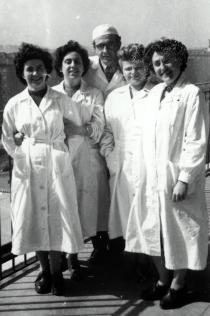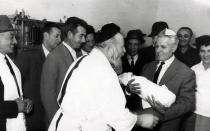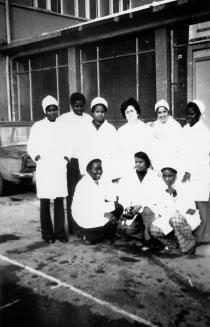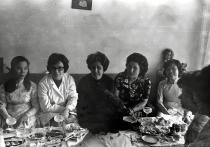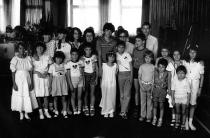This is a photo of my brother-in-law, Mois Rubenov, my sister Ester's husband, taken in Sofia in the 1930s. His partisan name was Velko. He was one of the first partisans in the Slavcho Transki's detachment. After 9th September 1944, he became a military officer. He and my sister knew each other from the time before the resistance movement.
Ester became a partisan in Kiustendil where we were interned during World War II. It was a real tragedy at home because it happened in the most difficult years, in 1941/42. My mother cried for days and days while my father said that perhaps the partisan-communists would bring us something better. He tried to reassure my mother that Ester would return. After the war he often used to joke that he was also a socialist, having sent his daughter to be a partisan. My eldest sister Klara cried and lamented for she already had a baby: 'She will burn our family, and my child will suffer because of her.' Ester trusted me very much, as I was engaged in the RMS [Revolutionary Youth Union] 5. She confided in me that she intended to join the partisan detachment: 'We'll leave with a group of partisans from Kiustendil. The connection has already been made. Don't say a word at home. I'll only leave you my ID card. Give it to mum as soon as you know that I've gone.'
We had a large gate in the yard, which we locked at 8 in the evening in order to protect ourselves from possible attacks or things like that. The day that Ester left it was 8, and she still wasn't home. Mother started to cry. She persuaded us not to lock the front door, as our sister was only running late and would turn up soon. My father began to reassure her. At the time appointed by Ester, when I was completely sure that she had already left town, I told them. And then Klara started again: 'That stupid little? She knew everything, yet she didn't tell us. Look what they brought to us.'
From that day onward we lived in constant fear. We were afraid that they would find Ester, or that they would come here looking for her. And our fears were justified. Within a month or two, the entire family of Iosif Kamhi - who had joined the partisan detachment with my sister - was sent to the Kailuka concentration camp in Pleven. We were horrified. They were sent there because their son had become a partisan. Anyway, they [the authorities] didn't touch us. I don't know why. Perhaps a good angel had saved us. There were no victims from our family. But the camp in Pleven was set on fire and our friend Iosif's mother burned to death there. Another story - one evening he came across my sister holding paint and a brush. She had written anti-fascist slogans on the walls. Instead of provoking a scandal, he simply told her to be careful, because it was a dangerous work.
